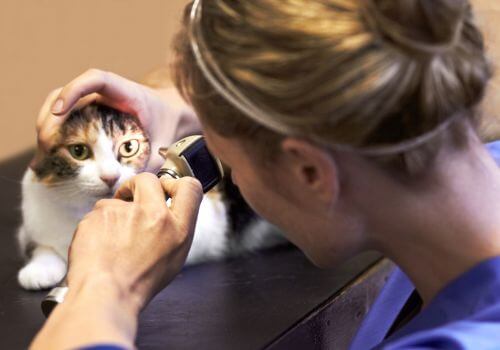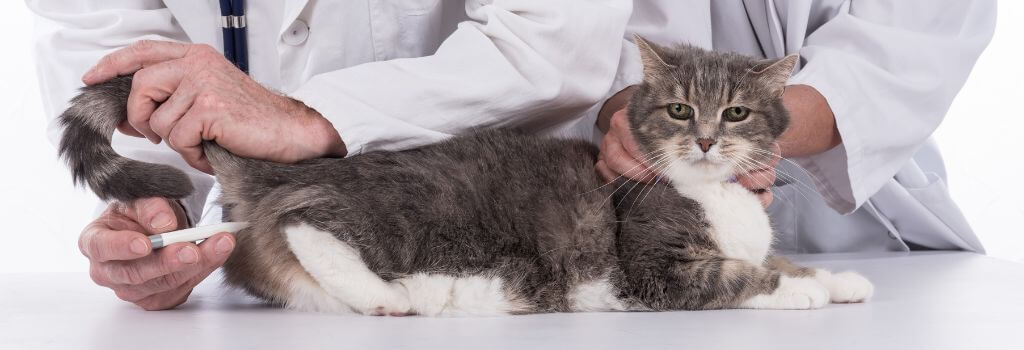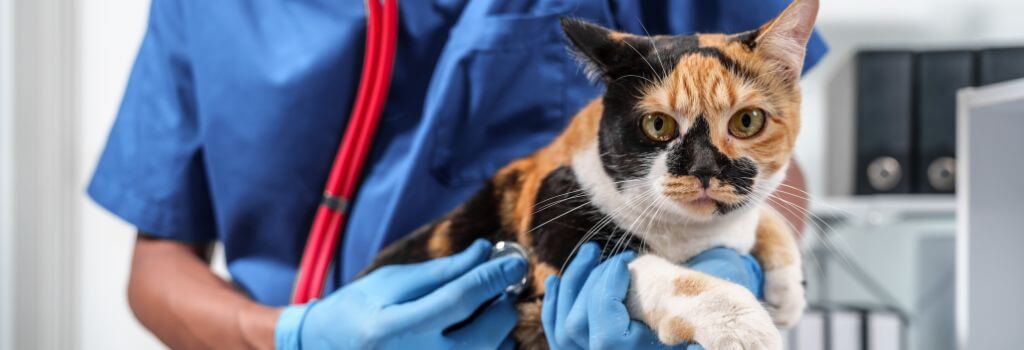As a cat owner, you may be wondering why regular wellness exams are so important even when your cat is in optimal health. At Port City Animal Hospital, we understand that you want what’s best for your feline companion, so we aim to educate about the role wellness exams play in keeping your cat healthy and happy. In this article, we will discuss what happens during a cat wellness exam, what a veterinarian looks for during an exam, and how you can ensure your cat maintains great health. We will also discuss the importance of early detection, as well as environmental factors that can affect your cat’s overall wellness.
What is a Cat Wellness Exam?
A cat wellness exam is a routine medical examination of a healthy cat, for the purpose of maintaining their optimal health and identifying potential issues early. These exams are pain-free and stress-free for your cat and essential for ensuring they are as healthy as possible. You might also hear them referred to as “check-ups” or “physical examinations.”
Wellness exams are recommended monthly for kittens and annually for adult cats. For middle-aged, senior, and geriatric cats, it is advised to have twice-yearly examinations as the likelihood of disease or discomfort increases with age. The frequency of exams depends on your cat’s age, health status, and lifestyle.
During a wellness examination, your veterinarian will ask questions about your cat’s diet, amount of exercise, typical behavior, daily habits, overall lifestyle, and general health. A head-to-tail physical examination will be performed, assessing various aspects of your cat’s health. Based on the findings, your veterinarian may recommend specific preventive treatments such as vaccinations, parasite control, dental care, supplements, and more. The AVMA reinforces the importance of cat wellness exams and compares them to a human’s need for regular physicals with their primary care physician.

What Will a Veterinarian Look for During a Cat’s Wellness Exam?
During a cat’s wellness exam, your veterinarian will assess the following:
- Heart and lungs
- Ears, eyes, and nose
- Mouth and teeth
- Skin and coat
- Abdominal palpation
- Nervous system
- Urogenital system
- Hydration
- Weight and body condition
- Temperature
- Overall check for lumps, bumps, and skin issues.
If your cat is under 10 years old, a basic blood panel will be conducted. For cats aged 10 or older, a senior blood panel is recommended which includes a complete blood count (CBC), biochemistry profile, urinalysis, and thyroid hormone testing. Based on your cat’s age and health status, they will recommend necessary vaccinations. Core vaccines are recommended for all cats, while lifestyle vaccines are tailored to specific needs. It is essential to discuss with your vet the best vaccination plan for your cat.
What Lab Work or Procedures May be Involved?
Lab work and diagnostic procedures are essential in veterinary practice as they help in the early detection and diagnosis of illnesses in cats. In addition to the blood panel, CBC, and urinalysis referenced above, common laboratory tests include fecal testing, skin scraping, EKG, radiology, ultrasound, histopathology, cytology, and MRI.
These tests can help detect urinary tract infections, kidney and liver diseases, diabetes, intestinal parasites and infections, skin conditions such as infections and parasites, heart rhythm abnormalities, and potential heart diseases. Additionally, they provide information about a pet’s hydration level, metabolism rate, and kidney function.

How Does Wellness Impact a Cat’s Longevity and Health?
Wellness is an essential component of a cat’s longevity and quality of life. Regular preventive care, such as vaccinations, help prevent certain medical conditions, while wellness exams help detect health issues early so they can be addressed before becoming serious. Advanced medical conditions not only put your cat’s life at risk but can also lead to potentially longer treatments and higher veterinary costs. Additionally, providing a balanced and nutritious diet, proper dental care, and ensuring your cat maintains a healthy weight are all important factors in a cat’s overall well-being.
Maintaining environmental wellness is also key in keeping your cat healthy. Providing a clean, sanitary, stress-free environment is essential for cats’ health. In addition, providing mental stimulation with interactive toys and engaging activities can help keep your cat active and alert.
When Should I Bring My Cat in for a Veterinary Wellness Exam?
It is important to bring your cat in for regular veterinary check-ups. Kittens should have monthly visits, while adult cats should have annual exams. For middle-aged, senior, and geriatric cats (above 11 years old), twice-yearly exams are recommended.
It is also important to look for any signs and symptoms of illness in your cat. If you notice any changes in your cat’s behavior or appearance, such as vomiting, diarrhea, excessive urination or drinking, weight loss or gain, coughing, listlessness, or lack of energy, it is best to consult with your veterinarian as soon as possible. Early detection can make a significant difference in the outcome of many illnesses and diseases in cats.
What Are Some Signs and Symptoms That My Cat Might Not Be Feeling Well?
Cats are notorious for hiding signs of illness, which can make it difficult for owners to detect when something might be wrong. It is important to monitor your cat and take note of any sudden changes in their behavior or appearance. Following are some key signs and symptoms that may indicate a cat is not feeling well:
- Changes in overall appearance: Sitting in a hunched position, moving less gracefully, carrying their tail differently, or tilting of the head.
- Changes in energy level and sociability: Withdrawn behavior, hiding, or becoming more clingy and demanding.
- Changes in coat appearance and shedding: Developing a dull or ungroomed coat.
- Changes in appetite: Sudden loss or gain of appetite that doesn’t return to normal eating behavior within 48-72 hours.
- Litter box usage: Improper use of the litter box, such as going outside the box or straining to urinate.
- Breathing difficulties: Rapid breathing or shortness of breath even when resting.
- Discharge from eyes or nose: Any unusual discharge is worth noting.
- Vomiting, diarrhea, or constipation: These can be symptoms of various health issues and should be monitored closely.
- Weight changes: Sudden weight loss or gain can indicate an underlying issue.
- Bad breath: Indicates a dental issue or other underlying health problem.
Common health issues in cats include kidney disease, dental disease, cancer, feline lower urinary tract diseases (FLUTD), feline immunodeficiency virus (FIV), feline leukemia virus (FeLV), diabetes, heartworm, and upper respiratory infections. Each of these conditions may have unique symptoms, but the general signs listed above can help pet owners identify when something might be wrong with their cat.
What Environmental Factors May Impact Cat Wellness?
Various environmental factors can have a significant impact on cat wellness, including both indoor and outdoor factors.
Indoor environment factors include space and confinement, cleanliness and odor, enrichment and boredom prevention, human-animal bond, and access to natural light. Outdoor environment factors include predators and other hazards, exposure to diseases and parasites, environmental impacts, and weather conditions.
It is important to ensure your cat’s environmental needs are met in order to promote its overall well-being. This includes providing a comfortable space with plenty of room for them to roam around; keeping their environment clean; providing enrichment activities such as toys and scratching posts; building a strong bond with your cat through positive interactions; providing access to natural light; protecting them from predators; maintaining proper parasite control; being mindful of the environment when allowing your cat outdoors; and monitoring weather conditions. The American Society of Feline Practitioners provides thorough details on ensuring your cat’s environmental needs are met.

Why is Early Detection so Important to the Well-being of My Cat?
Early detection of health issues in cats is essential for their well-being, as it allows for timely intervention and treatment. Cats age faster than humans, which means health issues can develop and progress rapidly. Establishing regular veterinary visits for wellness exams and early detection tests can help ensure your cat’s health is closely monitored.
Yearly wellness exams include a general physical examination as well as blood and urine tests to detect potential health challenges. Additionally, a complete blood count (CBC) provides crucial insights into a cat’s health, while urinalysis helps detect dehydration, kidney function, infection, internal bleeding, and other common problems. Blood chemistry tests measure the levels of various chemicals and enzymes in the blood to assess overall organ function.
Early detection of illnesses enables more effective treatment and prevention of progressive diseases. Furthermore, detecting subtle signs of sickness can lead to early diagnosis and help prevent desperate losses due to sudden illness or euthanasia. It is important to observe any changes in your cat’s behavior or appearance and consult with your veterinarian immediately if you notice any concerning signs or symptoms.
Conclusion
Cat wellness exams are essential for ensuring your cat stays as healthy as possible. During these exams, your veterinarian will assess various aspects of your cat’s health and recommend preventive treatments such as vaccinations and parasite control. It is also important to be aware of any environmental factors that can affect your cat’s well-being and look out for signs and symptoms of illness in them. Early detection is key in ensuring the best possible outcome for your cat.
At Port City Animal Hospital, we understand the unique bond between cats and their owners and strive to provide the highest quality and best service to ensure your cat stays as healthy as possible. If you live in or near Savannah, GA, contact us today at (912) 525-0255 to set an appointment or if you have any questions about cat wellness exams.
